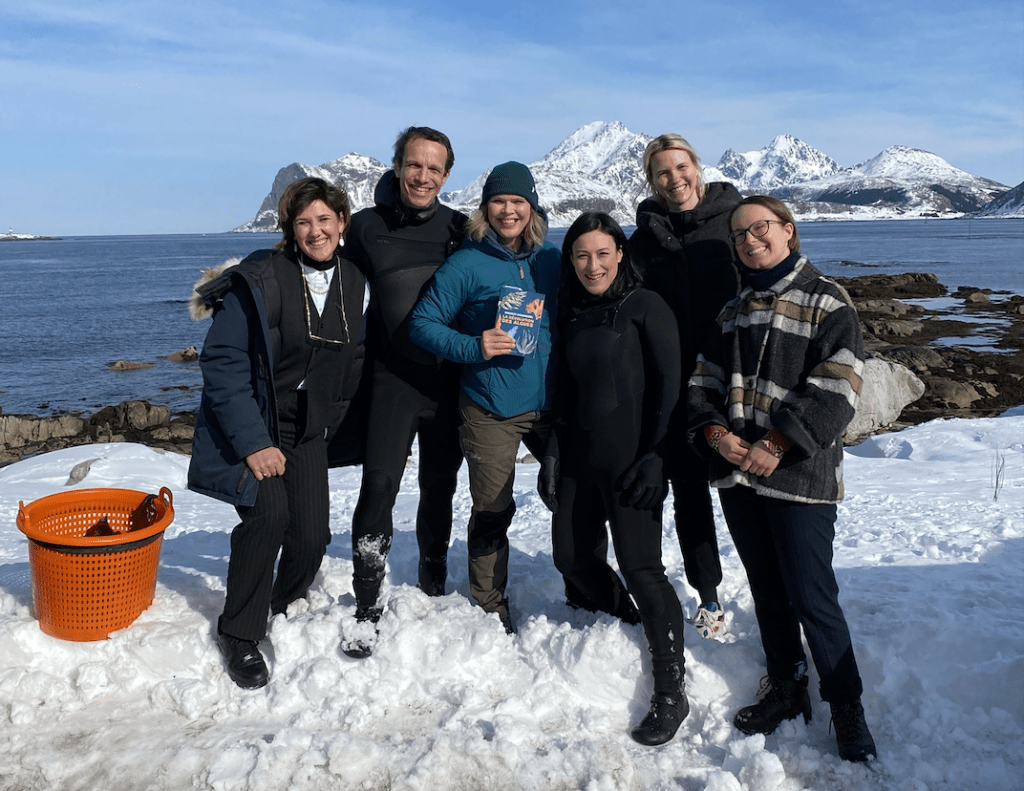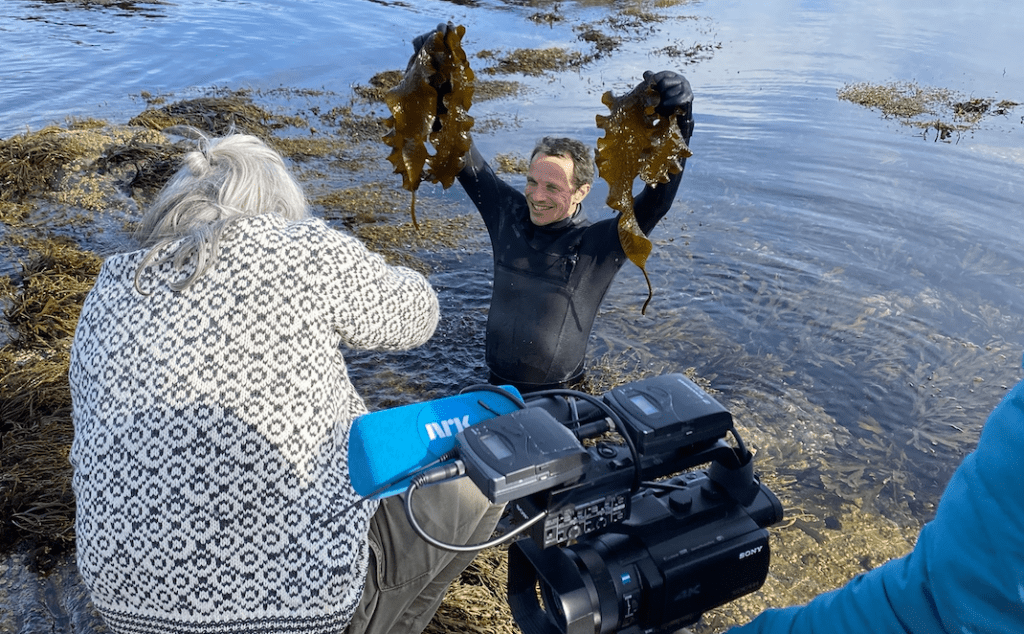The Seaweed Revolution comes to Napp

United by the seaweed revolution
On Thursday last week we were lucky enough to receive a visit from a delegation from UN Global Compact. The group of four was enthusiastically led by senior advisor, author and fellow seaweed-lover, Vincent Doumeizel, who was promoting the publication of his latest book: La Révolution Des Algues – The Seaweed Revolution.
It was a joy to share a room with a group of people from all over the world who share our passion for the ocean’s superfood; there was not a second of silence from the moment the delegation arrived to the moment they left (including the moments spent underwater!)
UN Global Compact is the world’s largest corporate sustainability initiative – an ambitious enterprise working with over 15,000 companies in 165 countries to establish and improve sustainable business practices. Senior advisor Vincent Doumeizel is an expert on ocean-based solutions to global challenges like hunger, plastic pollution, global warming and ocean acidification.
Vincent is convinced, like us, that the answer to these problems can be provided by the responsible cultivation and extraction of seaweed, a practice which is often referred to as aquaculture. Vincent heads up the Safe Seaweed Coalition – the first global seaweed platform – which gathers together hundreds of seaweed stakeholders in collaboration to create safe food, production, and environmental standards as the seaweed industry scales up.
Vincent has also recently published La Révolution Des Algues – The Seaweed Revolution. In this book Vincent asserts that in order to feed the global population in the year 2050, we must learn to cultivate seaweed. Currently, the world’s oceans cover 70% of the planet, but contribute to only 2% of the global food supply in calorific terms. Seaweed can change all of this; providing a solution to the global hunger crisis, whilst acting as a formidable weapon in the battle against climate change.
Vincent is a strong proponent of seaweed farming, and suggests in this article that wild-harvesting seaweed can “endanger species” – so we were of course very keen to talk to him about our sustainable harvesting methods, about which he was very interested. To our knowledge, we are the only company in Norway that monitors their harvests in such detail, so it was incredibly gratifying to have our methodology validated by such a giant in the field.
Another topic of conversation that we found fascinating is seaweed’s generations-old relationship with women. As I’m sure any reader of this blog is aware, Lofoten Seaweed is proud to be a female-led business that is forging a new relationship with the ocean against the traditional backdrop of man and fish.

We did not know however that in East Africa, 80% of jobs in the seaweed sector are held by women, and as such the seaweed industry supports women’s empowerment and gender parity in emerging economies. We also learned that much of what we know of British seaweed species comes from Victorian pressings made by ladies who, at a time where the popularity of natural sciences exploded, were permitted only to beachcomb and rockpool by way of contribution.
Our visit began with a quick tour of the office and an introduction to our guests, which included journalists from national and local press. It wasn’t long before the wetsuits were donned, and we drove in convoy to the mighty Nappstraumen, to one of our regular harvesting spots. With the tide fast incoming there was just enough time to pose for a photo against the stunning Lofoten backdrop (“my publicist will be very happy” said Vincent with a grin) before jumping into the frigid arctic waters.
Soon the air was filled with slick banners of amber kelp flying into our orange harvesting baskets. Particularly remarkable was the abundance of both winter and summer species of seaweed – the rocks were still smattered with pepper dulse and nori, and in deeper water, the sugar kelp was already showing impressive growth. After a productive harvest, and with the tide lapping around the boot-clad feet of us not brave enough to submerge ourselves, it was time to call it a day. We beat a hasty retreat to Seaweed HQ in Napp village, where warm and dry we shared countless cups of coffee, bites of seaweed chocolate, and truly fascinating stories about historical and modern seaweed pioneers.
A heartfelt thanks from all of us at Lofoten Seaweed to Vincent Doumeizel and UN Global Compact – you are welcome back any time. Long live the seaweed revolution!